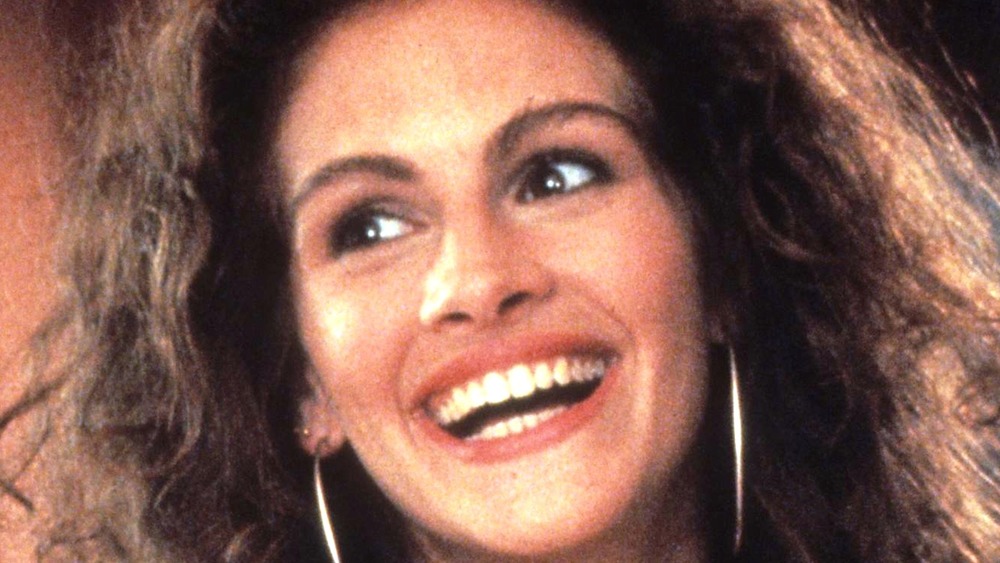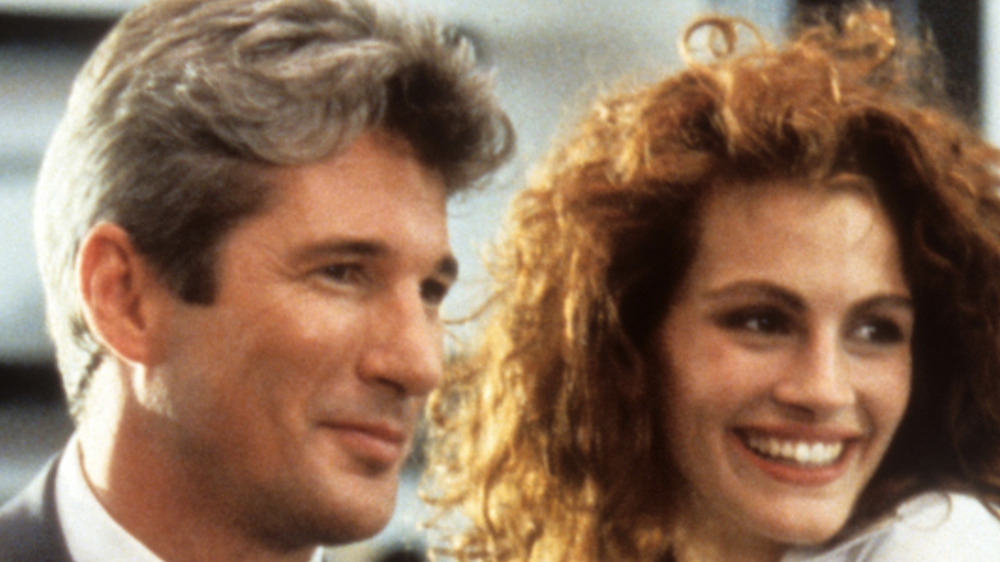How Pretty Woman's Original Downer Ending Turned Into A Classic Rom-Com
Pretty Woman was originally a very different kind of movie.
The film, which first hit movie theaters back in 1990, is now one of the most iconic romantic comedies of all time. Directed by Garry Marshall, it focuses on the bond that grows between a female sex worker and a wealthy businessman over the course of the week that she is hired to spend with him. The movie made Julia Roberts one of the biggest movie stars in history and became wildly (and unexpectedly) successful, with its $178 million box office total easily surpassing its initial $14 million production budget. Roberts even went on to win a Golden Globe for her performance, and was also nominated for Best Actress at the 1991 Academy Awards for her role in the film.
The ending of Pretty Woman, much like the rest of the film, is iconic. Considered one of the great Hollywood happy endings, the film's final minutes see Richard Gere's Edward Lewis return to Roberts' Vivian Ward, conquer his fear of heights, and climb up the fire escape to her apartment window. The two embrace on the fire escape and kiss, right before the film triumphantly goes to its end credits.
Believe it or not, though, Pretty Woman was not always going to end like that.
The original Pretty Woman ending was so dark
J.F. Lawton's initial screenplay for Pretty Woman — originally titled 3,000 — ended in a very different way than the final version of the film.
In Lawton's original script, the ending featured Julia Roberts' Vivian and Laura San Giacomo's Kit on a bus heading for Disneyland — a trip Kit is openly looking forward to — which is also financed by Vivian's week with Edward. The conclusion is far less happy for Vivian, though, as it ends with Vivian and Edward not ending up together, and Vivian staring "out emptily ahead."
The ending made sense in the original script, which was itself written as a dark and somber drama inspired by films like Wall Street and The Last Detail. It was not the right ending for many of the film's eventual producers and creative team members, though, with director Garry Marshall telling Vanity Fair that his initial vision for the film was to make it "a combination of fairytales." In that same interview, both Lawton and Marshall also said that the great connection between Richard Gere and Julia Roberts played a big role in changing the Pretty Woman ending, with Marshall noting that, "The chemistry between Roberts and Gere was perfect. The actors brought such a lovability and charm that I didn't think the audience would want a dark ending."
Lawton says Marshall went on to make many of the biggest changes to the film — including the addition of Vivian's speech in the film about fairy tales. However, it was producer Laura Ziskin who added the final touch to Pretty Woman's ending with the creation of Vivian's iconic final line: "She rescues him right back."

